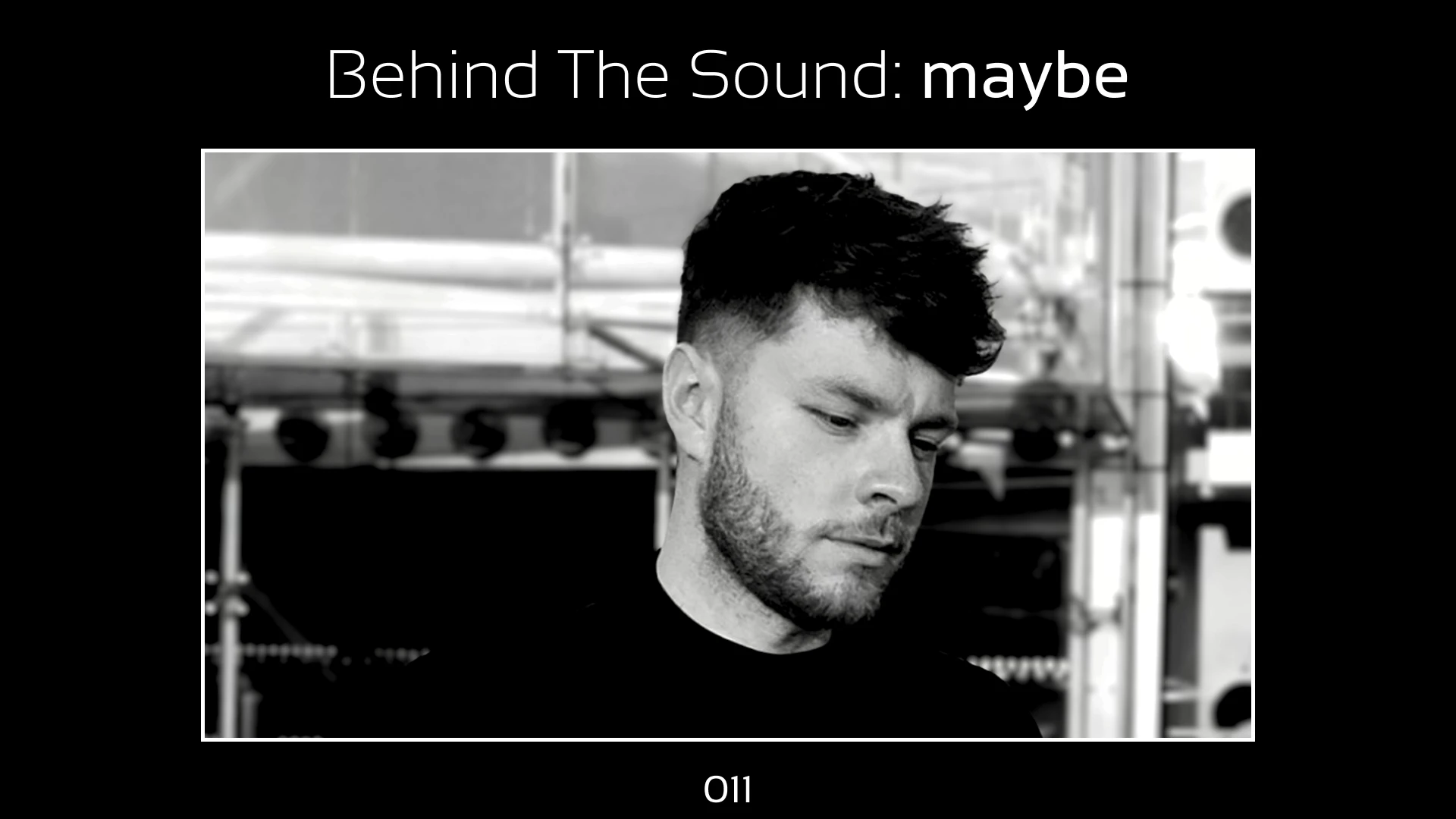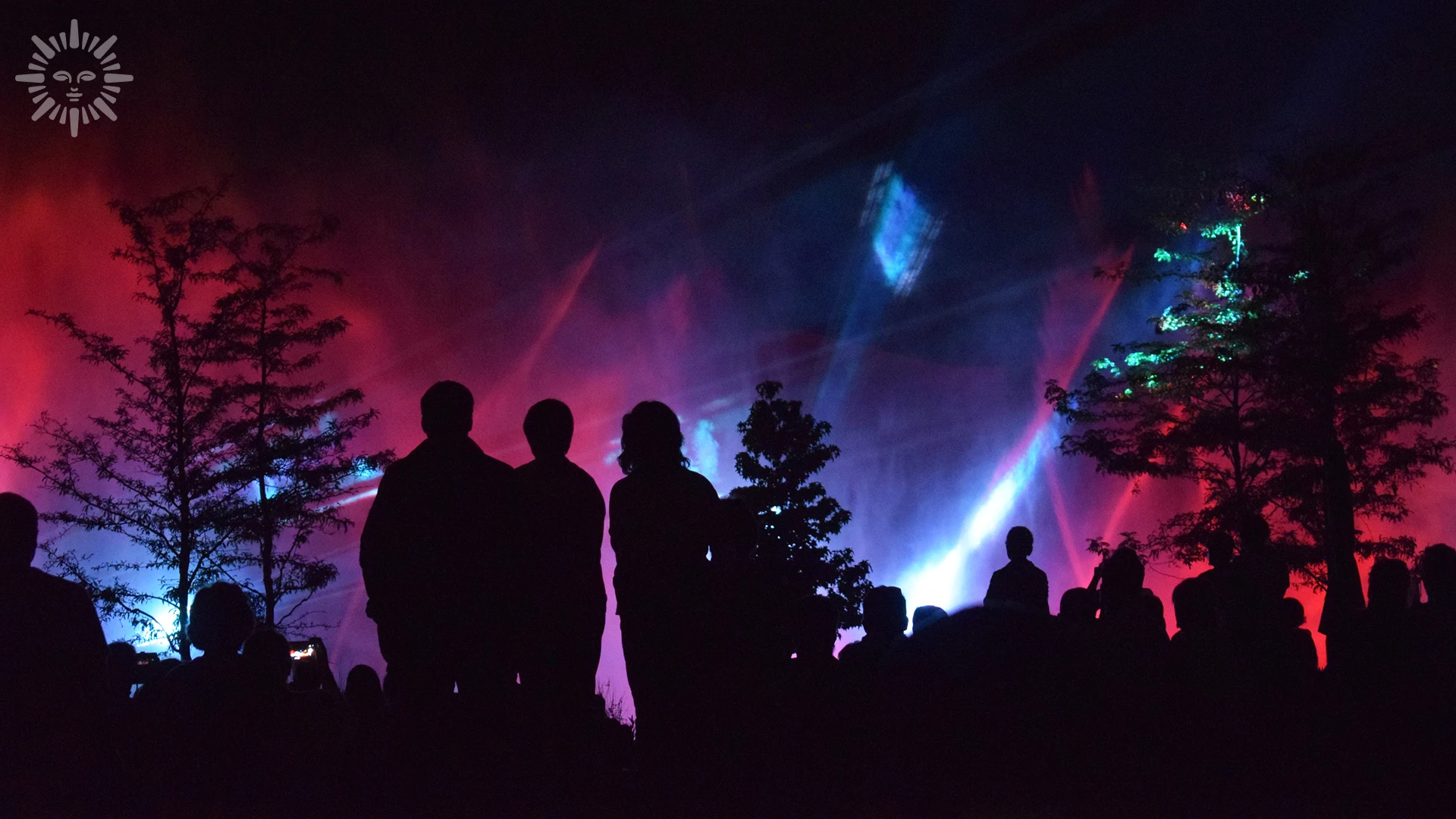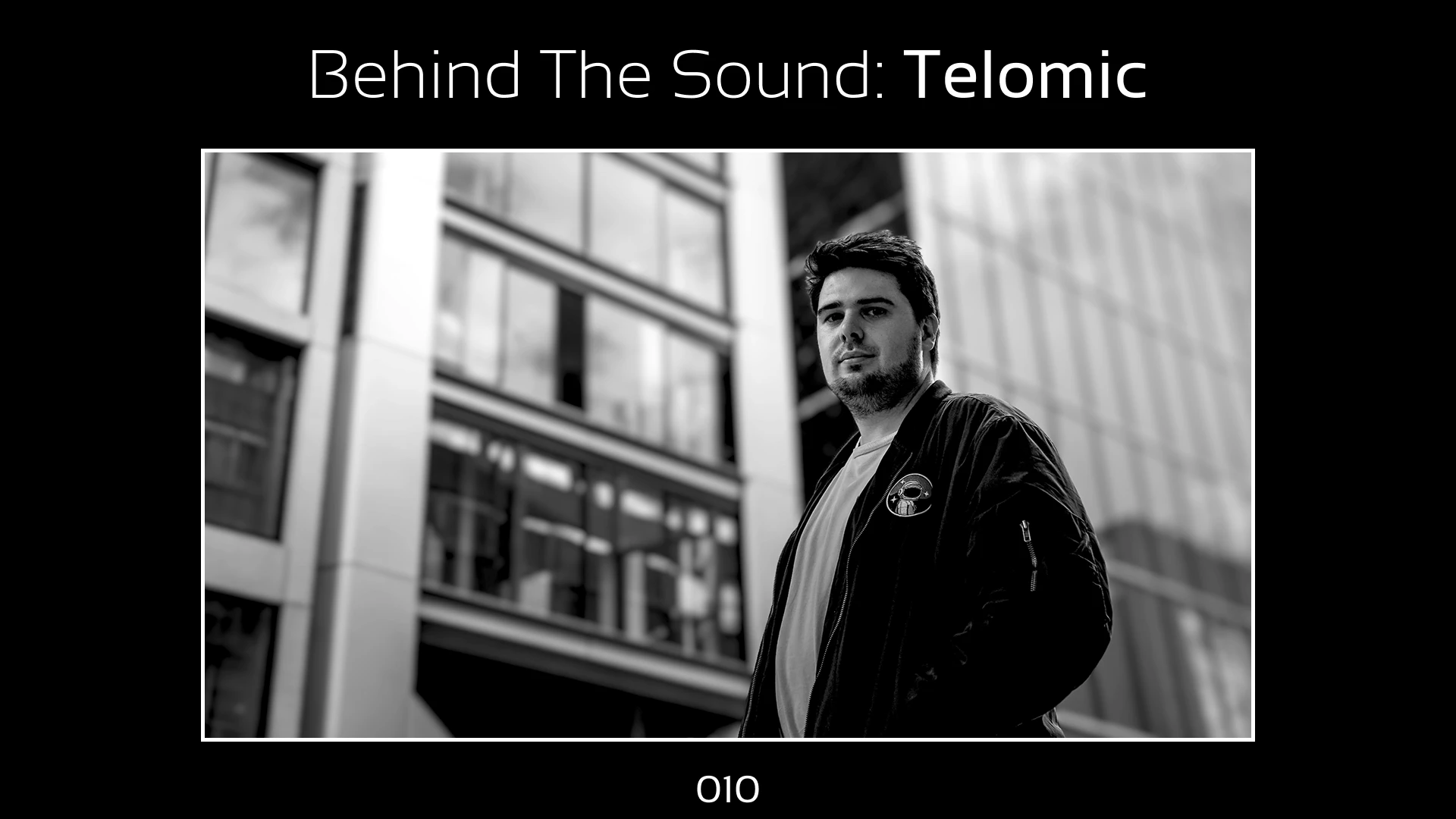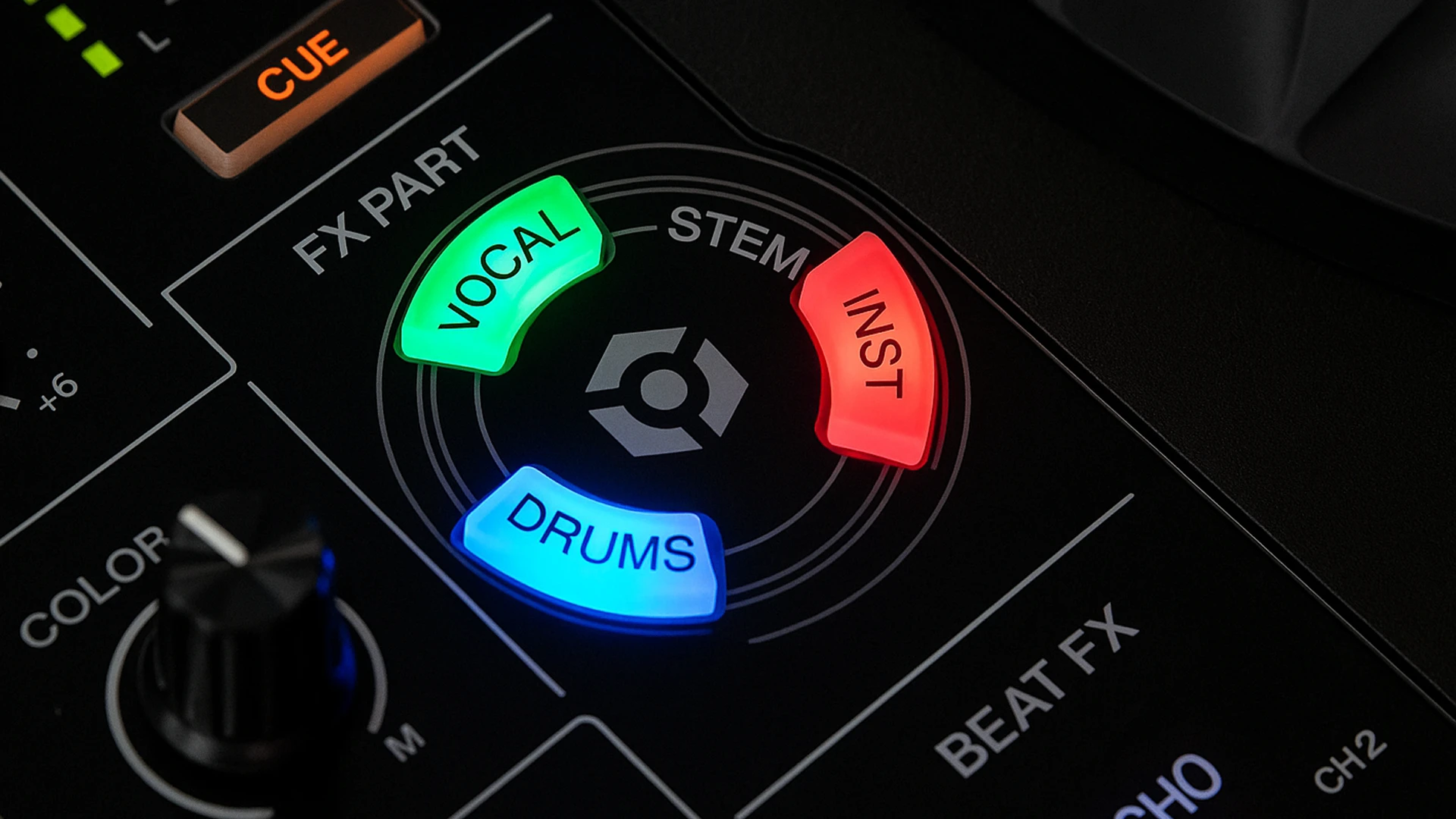Behind The Sound: Mauro Alves (Baska)
Next Sound launches its new interview series "Behind The Sound", a platform that dives into the stories, influences, and visions of artists shaping today’s music. Kicking off the series, we speak with Brazilian Drum & Bass producer Baska about his journey, his sound, and where he sees the future of the scene heading.
14 minutes read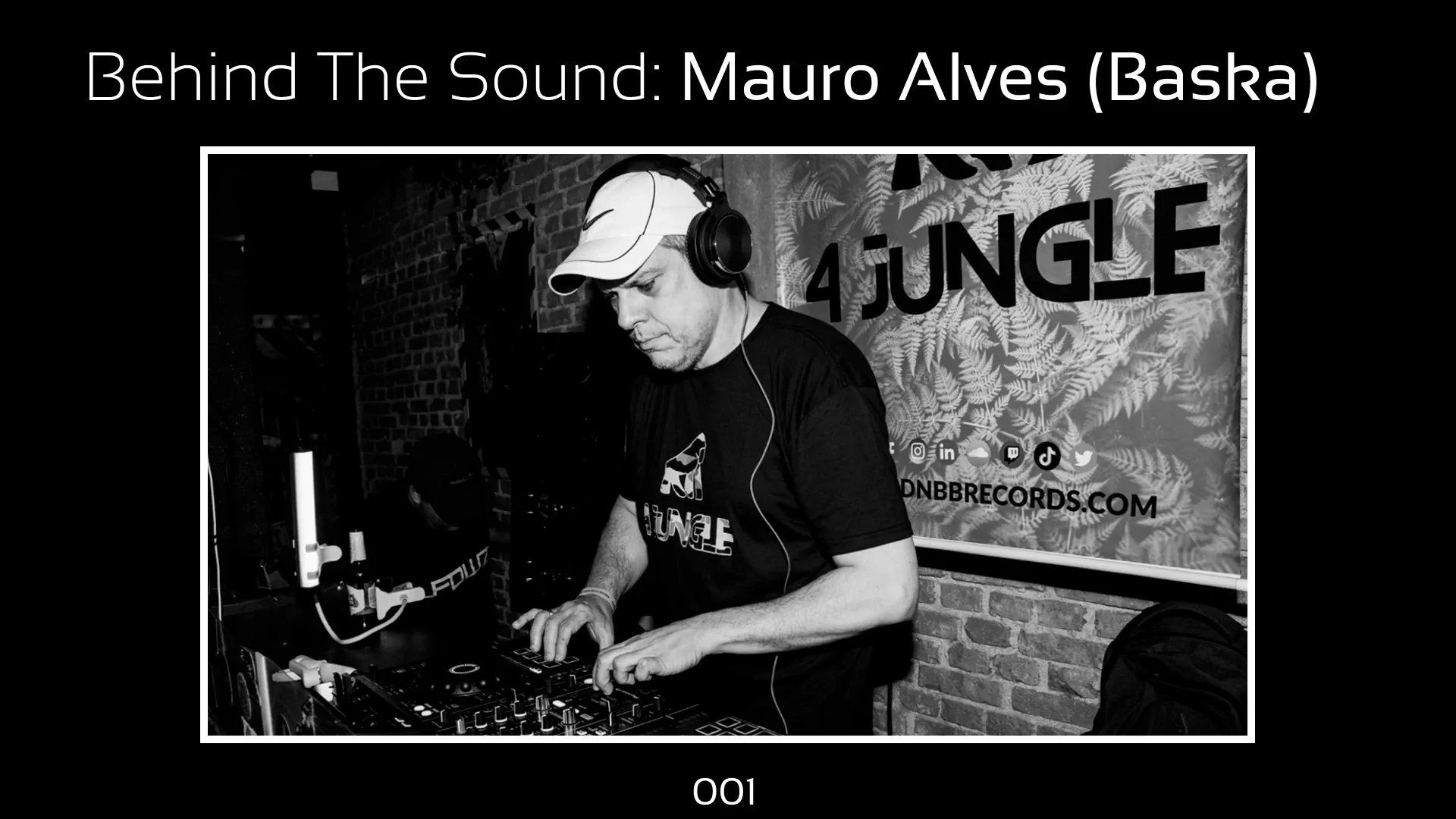
We sat down with Brazilian Drum & Bass artist Mauro Alves, better known as Baska, a veteran of Brazil’s nightlife who began as a DJ in the late ’80s and later turned his focus to production. With releases on both Brazilian, UK and international labels, Baska is carving out his place on the global Drum & Bass stage. We talked about his journey, his sound, and where he sees the future of the scene heading.
Background & Roots
You’ve been involved in nightlife and events since the late 1980s. What stands out most from those early days, and how did they shape the way you approach music today?
I first connected with music as a child, through my mother, who would play disco tracks to help me sleep. Growing up in the 80s, we had the privilege of a real childhood, playing on the streets, and music that, in my view, was far superior to much of what we hear today, especially in Brazil.
FM radio stations were mostly dedicated to dance music, so it was impossible not to be surrounded by good sounds, from disco to bossa nova, to traditional sertanejo and rock. All of it marked moments and phases of what many call the golden age of music, radio, and discotheques. By the age of 13, I was attending my first “bailinhos” (house parties in garages or flats) where we would listen to the hits of the time, dance with future girlfriends, and maybe, if lucky, get a first kiss.
In 1983 synthpop arrived, followed by hip hop, and in Brazil, rap grew strongly from 1987 onwards. Dance music entered the mainstream and completely changed my life. That fusion of sounds, and the constant emergence of new ones, became part of my musical culture and drove me to want to be a DJ, to share music and break away from sameness. I became a DJ in 1989, playing clubs and social events and I’ve been at it ever since. In 1990, I started broadcasting through a pirate radio station, and by 1993 I was working professionally in FM radio and recording studios as a presenter.
I´ll keep creating out of love, bringing joy to those who connect with my music, writing stories, and marking people’s lives with sound. In the end, being part of someone’s story through one of your tracks is worth more than money
- Baska DnB
You also built your own business working with sound and lighting. How did running that side of things influence your journey as an artist?
The company came from a need for stability and a desire to go beyond simply working for others in the events industry. It allowed me to establish myself as a DJ in social and corporate events, as well as in clubs.
Managing a business gave me focus and perspective, teaching me resilience, which directly influenced my journey as a Drum & Bass producer. Just like running a profitable company in Brazil; with high costs for computers, hardware, software and plugins, building a career in music is difficult, especially at the start.
What worked in business, I apply to my productions. What failed, I try not to repeat always aiming to reach more people who live and breathe Drum & Bass.
Transition to Drum & Bass
What drew you to Drum & Bass after working in so many areas of the music industry?
I’ve always loved music in general,particularly electronic music across its many forms. However, hearing hardcore for the first time was a turning point. I was already drawn to Belgian new beat and industrial sounds, but then jungle came along and sealed my unconditional love for what would evolve into Drum & Bass.
I attended nights in São Paulo where jungle first began appearing in clubs, watching DJs like Marky and Andy introduce it to Brazilian audiences. Later, when producers like Patife, XRS, Ramilson Maia and MadZoo began blending Drum & Bass with Brazilian popular music, and when talents like Fernanda Porto and Janaina Lima emerged, there was no turning back. DnB became a way of life.
I could fill countless pages describing how each track has connected with moments, emotions, loves, and disappointments.
You studied at Bass Music Academy (BMA) in 2021. What impact did that have on you as a producer?
It was one of the best decisions I’ve ever made. Thanks to DJ Andy, who founded BMA, many barriers to producing Drum & Bass in Brazil were broken down. For years I had struggled; stuck on arrangement, unsure of the aesthetics of DnB, struggling with DAWs (Digital Audio Workstations) like Ableton. At BMA, I not only learned the technical side, but also shifted my mindset to focusing on enjoying the process.
After the course, I could finally understand tutorials from artists like Telomic and others, which previously seemed impossible. Today, with nearly 30 releases and more to come, I have also made friends and collaborators across the world, UK, Russia, Germany, Spain, thanks to BMA, DJ Andy, and the unconditional support of my wife, Erika.
It’s often that outside perspective which provides the light you didn’t see.
- Baska
Creative Process & Sound
How has your music been received in Brazil compared to abroad?
This is always a delicate topic. Within BMA we have a culture of mutual support, cheering for each other’s successes. But unfortunately, some established names in Brazil rarely give feedback or support, let alone play a fellow producer’s track. In truth, many don’t even listen to promos. That said, this is not unique to Brazil.
Abroad, I’ve found much more support, feedback and respect, both from audiences and producers. At the same time, Brazil does have a loyal DnB fan base, dedicated promoters, and labels like DNBB and Tamborim Records who create opportunities for new and established producers.
Since your first release, how has your sound evolved?
The evolution came through persistence, trial and error, and countless abandoned projects. There were many moments when I told (my wife) Erika I was ready to give up. But constructive feedback from friends like Badwolf, and the support of people around me, kept me going.
I wouldn’t have evolved without that cycle of trying, failing, and learning. Feedback exchanges with fellow BMA producers also shaped my growth.
It’s often that outside perspective which provides the light you didn’t see.
With your background in electronics and computing, how does that knowledge influence your production process?
My technical background helps enormously. Knowing how to work with hardware, operating systems, and fixing equipment gave me direction; what to invest in, what to avoid, and how to optimise my workflow.
I approach production like a repair: you start with something broken down, and you assemble it into something functional, coherent, and hopefully moving for many people.
Industry & Independence
You’ve released music independently and even mentioned opening a label. What’s the overall vision behind it?
It’s about offering other producers the same opportunities I’ve had with labels in different countries, beyond Brazil. Sharing the knowledge I was forced to seek out on my own: how to promote yourself, how to approach producers, curators, and labels, how to register and release your music, shortcuts for what I was never directly taught.
It’s also about giving artists a real vision of the music market, what to expect, what kind of return they want, what’s realistic, and how to deal with the frustrations of this career.
Most importantly, it’s about encouraging artists to be proactive with the label: promoting themselves, networking, and building connections that can help them reach their goals.
From your perspective, what are the biggest challenges for Brazilian Drum & Bass producers trying to connect with the global scene?
One major challenge is not speaking English, although with the internet and translation tools, that excuse doesn’t hold as much weight anymore. There’s also the fear of not receiving feedback from established producers or big labels, or not knowing how to reach out without sounding opportunistic.
Another challenge is simply not showing up, not being visible, not keeping (active on) social media and directed toward the DnB audience, not doing live streams, not putting out DJ sets to showcase your music, your performance, and your feeling for the crowd. Without that interaction, the opportunities to grow beyond your local scene are limited.
How do you usually decide which labels to work with when releasing your music?
At first, my plan was to release at least one single or EP on every Brazilian DnB label. However over the past three years, that focus shifted, mainly because of rejections from labels, which either make you give up or push you to look for new horizons.
Luckily, that pushed me to take the first step toward international labels, both to get feedback and to understand what I needed to improve in order to release on them. In a way, it became about bringing DnB from other countries into Brazil, while also earning recognition from respected names worldwide.
Now, my main focus is UK labels, since it has the biggest market for DnB and home to most of the genre’s key labels. Still, I’m open to working with labels from around the world that see potential in my music, want to include me in their roster, and support my journey.
In the end, I hope to leave something that, in the future, people will still listen to, something that inspires, moves, and makes them dance.
- Baska
Personal & Future
You’ve been involved in different areas of the music world for decades. What keeps inspiring you to keep creating?
I’m 53 years old, and I started producing late (in life). I’m inspired by the (limited) time I may have to reach my goals, such as playing at big festivals alongside great names in DnB, meeting them, or even collaborating with them someday.
Releasing music on major labels is also a huge motivation, and the only way to get there is to keep producing.
I also draw inspiration from my wife, who has given me unconditional support, never let me quit, and became my example of perseverance.
In the end, I hope to leave something that, in the future, people will still listen to, something that inspires, moves, and makes them dance. Maybe a musical legacy, keeping my name in the history of Drum & Bass.
Beyond music, you’ve also worked with photography in nightlife and rave culture. Do visuals still play a role in how you think about your music today?
I’ve always been passionate about lighting, lasers, and visuals. I believe the visual side connects deeply with the identity of a track, its title, the feelings it conveys, and whether the artwork makes sense with the music and sparks interest in listening.
Lighting itself plays a different role. Certain sounds reflect states of mind, and I imagine what kind of light or color would fit them. For example, whenever I hear a neuro track, I picture myself in a club where moving beams cut through smoke, strobes flash wildly, chaos of light and color fills the room, and sometimes a blackout sets the mood, paired perfectly with a deep liquid tune.
Looking ahead, what’s next for you? Any collaborations or projects you’re especially excited about?
It’s hard to say. The plan is to keep going, evolving, reaching more people, having my tracks played at big festivals, and continuing to make new friends through DnB.
Right now, I’m preparing new releases with labels I’ve worked with before, both in Brazil and abroad, including some well-known names in the scene. I’m also planning independent releases, possibly an EP with remixes by producers I’m in touch with, maybe even from outside Brazil.
In terms of collaborations, I’ve been working closely with DJ LLIW, who is another talented BMA graduate. We’ve already released one single together, and have two more collabs coming out this year on Koba Audio, more tracks will likely follow.
Frustration is part of the journey. Rejections too. Enjoy the process of creation, and be careful with feedback from people who haven’t achieved results themselves, they can hold back your growth.
- Baska
Scene & Culture
How would you describe the current state of the Drum & Bass scene in Brazil?
Since the pandemic, there’s been a noticeable rise in the number of tracks being released by new producers and a revival of parties.
Before, São Paulo only had three or four regular DnB events, plus a few smaller initiatives. The reality is that much of the Brazilian DnB crowd is over 40, and new audience growth has been limited.
However this year, we’re seeing new events emerge, more initiatives, even with smaller crowds that give hope for growth. There’s potential both for parties to expand and for the scene to attract younger audiences who will consume and support Brazilian DnB producers.
Unfortunately, we don’t have radio stations or mainstream media supporting the genre, and given Brazil’s music culture, it’s unlikely DnB will return to the mainstream.
Do you feel Brazilian culture and energy flow naturally into your productions?
Culturally, not really. I feel more connected to the roots of DnB, jungle, and UK subgenres. Maybe when I manage to work with a Brazilian vocalist with cultural significance, I’ll be able to bring more local elements into my sound, though some artists here already do that masterfully, like Fernando Ferreira.
The energy however, makes a huge difference. We never give up. Despite the difficulties, we keep moving forward, and with or without challenges, we get there.
Collaboration & Community
How has working with different producers and labels influenced your artistic growth?
I’ve learned to value the investment labels make in releasing my music, always thinking about how quickly I can help that investment pay off, how to keep doors open, and how to open new ones.
I’ve learned to accept rejections, to collaborate with label teams, and to do my part so they want to keep me releasing my music.
My tracks carry a lot of input from other producers; we exchange feedback, suggest adjustments, test ideas. That outside perspective often sheds light on things I don’t see or hear. Without this mutual support encouraged by BMA, I might still be stuck making my first 10 tracks.
I learn every day from producers in Brazil and abroad, whether through feedback, YouTube, Discord, courses, or other platforms.
If you could collaborate with any Brazilian artist and any international artist, who would you choose, and what would you hope to create together?
It’s hard to choose only one, I have a long list.
In Brazil, I’d love to work with DJ Andy, who opened the doors for me through BMA and encouraged me to become a producer. Internationally, Degs would be incredible, both for his vocals and his productions.
But honestly, the list would be much, much longer.
Future & Vision
What advice would you give someone just starting out in Drum & Bass production?
First, just start. Take a good course in the your language, it’ll save you time and help you learn your DAW. Don’t overcomplicate things by thinking you need to master sound design right away; use samples to make things easier. Learn to do the basics well, that alone will give you results. Ask questions, practice what you are learning.
Your first four (or so) tracks aren’t for labels; at most, share them with your partner, family, or close friends. They may not understand DnB, but they’ll support you.
Frustration is part of the journey. Rejections too. Enjoy the process of creation, and be careful with feedback from people who haven’t achieved results themselves, they can hold back your growth.
With streaming and digital platforms reshaping the industry, do you think it’s easier or harder for underground artists to build a career today, and why?
Today, anyone can release music independently through streaming. Whether underground or mainstream, building a career is possible.
But making a living from it, paying your bills, supporting your family, and enjoying life depends on how long you can keep your dream alive while surviving on scraps.
The hardest part is promotion. Artists without money struggle to push their music enough to see returns, gain global visibility, play big events, or sell merchandise.
Streaming platforms profit enormously while artists fight for crumbs, trapped by a system originally created to fight piracy but now controlled by majors who take the biggest share of artists’ creativity.
What milestone do you dream of achieving, whether it’s a release, a festival, or a personal goal?
There are many: playing at Sun and Bass, Let It Roll, or having my tracks played at these festivals by respected artists.
Releasing on one of the major DnB labels, or several, is another dream.
Ultimately, I think every producer wants to live from their music, to keep doing what they love without worrying about survival outside of it. I share that goal too.
But until that happens, I’ll keep creating out of love, bringing joy to those who connect with my music, writing stories, and marking people’s lives with sound. In the end, being part of someone’s story through one of your tracks is worth more than money.
